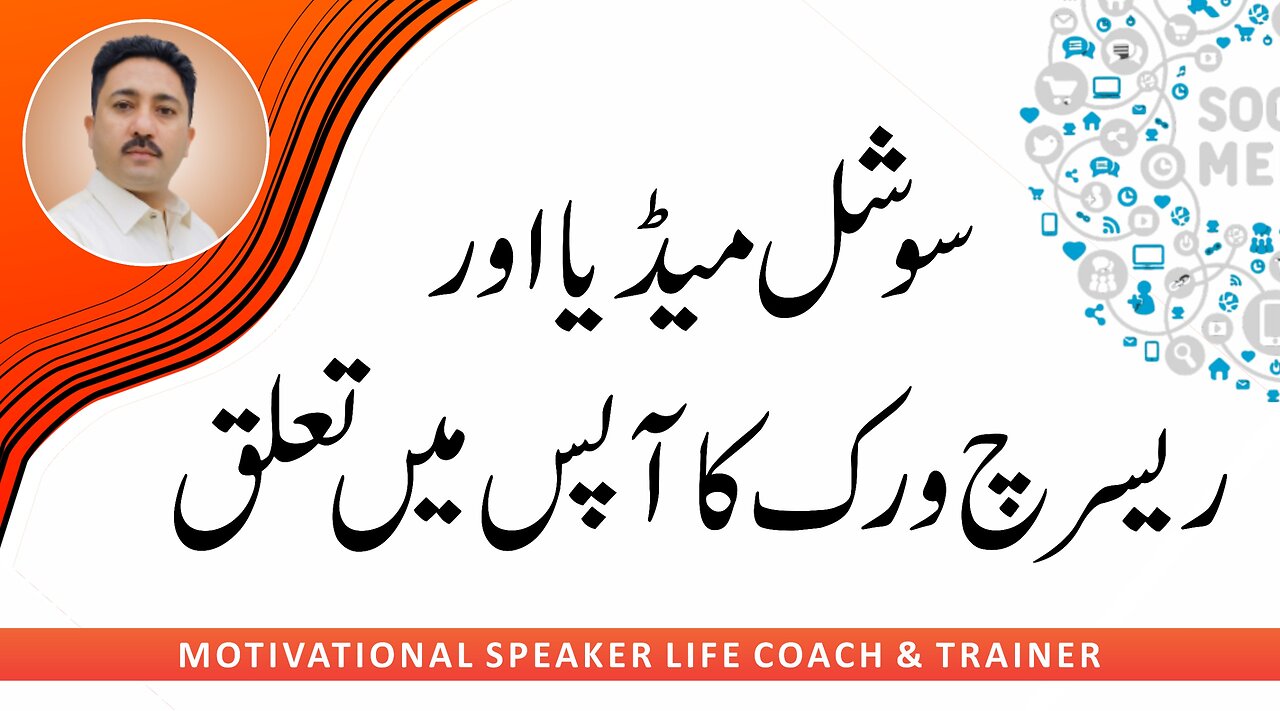Premium Only Content

Social Media and Research work
Social media and research work have a complex and multifaceted relationship. On one hand, social media can be a powerful tool for researchers, providing access to a vast amount of data, facilitating collaboration, and enabling the dissemination of research findings to a wider audience. On the other hand, the use of social media in research also raises concerns about privacy, ethics, and the potential for bias.
Here are some of the ways in which social media can be used in research work:
Data Collection
Social media listening: Researchers can use social media listening tools to monitor conversations on social media platforms and gather data on public opinion, trends, and emerging issues.
Surveys and questionnaires: Social media can be used to distribute surveys and questionnaires to a large and diverse audience, potentially reaching participants who would be difficult to reach through traditional methods.
Crowdsourcing: Researchers can leverage the collective intelligence of social media users to gather data, analyze information, and solve problems.
Collaboration
Online communities: Social media platforms can be used to create online communities where researchers can connect with colleagues, share ideas, and collaborate on projects.
Project management tools: Social media tools can be used to manage research projects, track progress, and share information with team members.
Dissemination of Research
Blogs and websites: Researchers can use social media to create blogs and websites to share their research findings with a wider audience.
Social media platforms: Researchers can use social media platforms to share their research findings with their followers and engage in discussions with other researchers and the public.
Ethical Considerations
Privacy: Researchers must be mindful of privacy concerns when collecting and analyzing data from social media platforms. They should obtain informed consent from participants and take steps to protect their privacy.
Bias: Researchers should be aware of the potential for bias in social media data and take steps to mitigate it.
Misinformation: Researchers should be careful to avoid spreading misinformation on social media and to critically evaluate the information they encounter.
Overall, social media can be a valuable tool for research work, but it is important to use it responsibly and ethically. By understanding the potential benefits and risks of social media, researchers can harness its power to advance knowledge and improve society.
-
 LIVE
LIVE
Pepkilla
2 hours agoBattlefield 6 SMG Camo Grind
77 watching -
 14:22
14:22
Exploring With Nug
9 hours ago $4.28 earnedThe River Exposed a Secret That No One Was Supposed to See!
34.6K2 -
 23:23
23:23
MYLUNCHBREAK CHANNEL PAGE
11 hours agoThe Sunken Basilica
77.4K6 -
 8:05
8:05
Hollywood Exposed
2 hours agoCharlie Sheen STUNS Tucker Carlson With His Shocking Political Confession
1.82K13 -
 LIVE
LIVE
SavageJayGatsby
1 hour ago🔥 Spicy Saturday – Let's Play: Prison Life 2🔥
26 watching -
 30:02
30:02
The White House
2 hours agoVP JD Vance Delivers Remarks at 250th Anniversary Celebration for the United States Marine Corps
8.35K17 -
 3:50:26
3:50:26
GamerGril
5 hours agoShould I Get A Zoob Job 💞Dying Light The Beast💞
11.3K5 -
 5:00:18
5:00:18
MattMorseTV
9 hours ago $251.17 earned🔴No Kings "protest" TOTAL CHAOS.🔴
303K485 -
 1:28:51
1:28:51
Darkhorse Podcast
7 hours agoCan the internet make you sick? The 297th Evolutionary Lens with Bret Weinstein and Heather Heying
32.2K10 -
 1:21:31
1:21:31
Michael Franzese
20 hours agoTrump Derangement Syndrome Is On The Way Out | Live with Michael Franzese
112K126